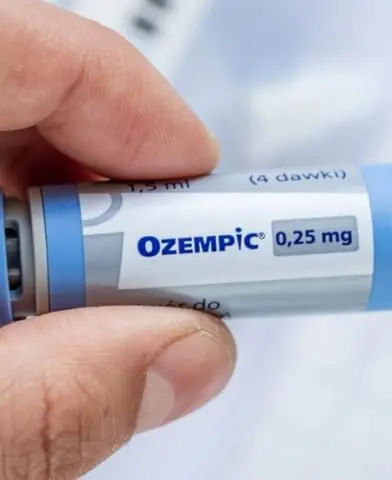
Drug And Alcohol Rehab And Detox Near Elgin, Illinois
Clinically Reviewed by:
Elgin, Illinois, located northwest of Chicago, is a city known for its rich history and diverse community. Unfortunately, it is also known for the prevalence of cocaine and opioid addiction in the community.
Indiana Center for Recovery extends a helping hand to our neighbors in the Midwest. Keep reading to learn more.

Key Takeaways
Elgin faces substance use issues, emphasizing the need for effective addiction treatment solutions. Here’s what you need to know:
- From detox to outpatient care, Indiana Center for Recovery offers various levels of care.
- Learning about the location and services of rehab is vital to choosing the right facility for yourself.
- Rehab centers offer various payment options and benefits for people who want to have a sober life.
Indiana Center for Recovery offers services to help you live a better tomorrow. Call us today at (844) 650-0064 to reserve your spot.
Effects of Substance Abuse on Individuals in Illinois
In the state of Illinois, substance abuse takes a toll on individuals, impacting their mental health and overall well-being. The pervasive issue includes challenges associated with mental health issues, worsening the struggles faced by those dealing with alcohol or drug addiction. From the bustling city of Chicago to smaller communities like Elgin, the consequences of alcohol use disorder and drug addiction ripple across the state.
Importance of Substance Abuse Treatment
Recognizing the critical need for intervention, the state of Illinois emphasizes the importance of substance abuse treatment. Rehab centers, equipped to address both mental health issues like anxiety and substance use disorders, play a pivotal role in facilitating recovery.
These drug rehab centers in Illinois and neighboring Indiana offer programs such as medical detox tailored to individuals, promoting holistic healing and providing essential support to those grappling with the complexities of addiction. By prioritizing access to treatment, Illinois strives to create a path toward recovery, fostering a healthier and more resilient community.
Diverse Levels of Care at Rehab Facilities
Treatment programs offer a full continuum of care to address various stages of the recovery process, providing hope and support for individuals, young adults, and families affected by addiction.
Detox Program
The journey to sobriety often begins with a detox program. Here, clients undergo a supervised process to safely manage withdrawal symptoms, and their bodies get rid of toxins. Staff at these programs prioritize the well-being of patients, employing evidence-based treatment. Through medications and counseling, doctors help patients to adjust without relying on drugs.
Residential Program
Residential treatment becomes vital for those requiring a more immersive and structured environment. This program includes 24/7 medical care, meals, engaging activities, and skills to overcome addiction. This level of care not only focuses on addiction treatment but also addresses co-occurring mental health disorders. The residential setting allows individuals to receive comprehensive support while building a foundation for lasting recovery.
Outpatient Program
Outpatient programs offer flexibility for individuals seeking treatment while maintaining their daily lives, such as attending office or school. These programs cater to various age groups, including adults and young adults, addressing various aspects of addiction through therapy sessions and counseling.
Partial Hospitalization Program
Partial hospitalization programs (PHP) bridge the residential and outpatient care gap. Tailored to the person’s needs, PHPs provide intensive outpatient services, including day treatment, ensuring clients receive structured support while gradually transitioning to more independent living.
PHP offers a full continuum of care by offering diverse treatment options, including medication-assisted treatment for opioids. Through these levels of care, the state aims to prevent drug overdose and empower people on their journey to recovery.
Types of Therapy Programs
In the rehab centers for addiction treatment, various therapy programs play a key role in helping individuals overcome challenges and build a healthier future. Two commonly used therapeutic approaches are cognitive behavioral therapy (CBT) and dialectical behavior therapy (DBT).
Cognitive Behavioral Therapy (CBT)
CBT is a goal-oriented therapy that focuses on identifying and changing negative thought patterns and behaviors. This therapy helps individuals recognize and challenge destructive habits, offering practical tools to manage stress, cravings, and triggers. By promoting a positive mindset and teaching coping strategies, CBT empowers individuals to break free from the cycle of addiction.
Dialectical Behavior Therapy (DBT)
DBT is a therapeutic approach that combines cognitive and behavioral strategies. It particularly helps individuals struggling with intense emotions and self-destructive behaviors. DBT teaches skills such as mindfulness, emotion regulation, and interpersonal effectiveness. This therapy aims to balance acceptance and change, fostering personal growth and resilience in the face of challenges.
Steps to Choose the Right Treatment Center
When seeking a treatment center for addiction, taking thoughtful steps can make a significant difference in the recovery journey. Here are key considerations to guide the decision-making process:
Reviews and Level of Care Needed
Look for reviews and testimonials from former clients and their families. That can give you insights into the quality of care and the overall experience at the treatment center. To choose a suitable level of care, begin by assessing the severity of the substance use disorder.
Moreover, ask about the treatment approach used at the center and the specific programs they offer. Make sure their approach aligns with your preferences and needs. Some individuals may require intensive inpatient care, while others may succeed in outpatient programs. Understanding the level of care needed sets the foundation for a tailored and effective treatment plan.
Location and Accreditation
Consider the treatment center’s location to determine if it suits you. Proximity to family and friends can be beneficial. Additionally, evaluate practical aspects such as the cost, insurance coverage, and available amenities. A comfortable and supportive setting can contribute significantly to the overall experience.
Verify the accreditation of the treatment center and ensure that the staff members are licensed and experienced in addiction treatment. Accredited facilities adhere to industry standards, providing a higher level of assurance regarding the quality of care.
Admission Process at Rehab Centers
Admitting oneself or a loved one to a rehab center involves a specific process focused on providing effective addiction recovery services. The first step typically includes contacting the center and speaking with an admissions provider.
During this initial communication, information about various programs available for tailored treatment is shared. The admissions provider guides individuals through the required paperwork, ensuring a smooth entry into the chosen program. On the day of admission, you’ll arrive at the rehab center and undergo an orientation process. That may include a facility tour, introductions to staff members, and an overview of the treatment program. This user-friendly process highlights support, making the journey towards recovery accessible and encouraging for those seeking aid with substance use disorders.
Reasons to Seek Professional Treatment for Addiction
Seeking help from addiction treatment centers brings numerous benefits to individuals on their path to recovery. These centers offer:
- Professional Guidance: Trained staff guide clients through the recovery process.
- Structured Programs: Treatment centers offer organized schedules and therapeutic activities.
- Safe Environment: Facilities ensure a secure space for healing away from triggers.
- Peer Support: Clients connect with others facing similar challenges.
- Holistic Approach: Centers address both physical and mental well-being.
- Individualized Care: Tailored treatment plans cater to unique needs.
In choosing addiction treatment, individuals access a holistic approach that enhances physical and mental well-being. These benefits create a foundation for lasting recovery and a healthier, substance-free life.
Frequently Asked Questions (FAQ)
The most common therapy for substance abuse is talk therapy. In therapy, a person talks with a therapist to understand their thoughts, feelings, and behaviors related to substance use. The therapist helps them develop coping strategies, set goals, and learn ways to avoid or manage triggers for substance use.
Counseling can be done one-on-one, with family members, or in group settings. It’s important for people struggling with substance abuse to seek help from qualified professionals.
The detox process typically involves supervised withdrawal from substances. Medical professionals assess your health, manage withdrawal symptoms, and provide support. Medications may be prescribed to ease discomfort.
The duration varies based on substance type and individual factors. The nursing staff monitors vital signs, ensuring safety. They may also provide nutritional support and counseling. After detox, individuals often transition to further treatment.
Substance abuse treatment centers offer important help for people with substance use issues. They provide various services to support recovery, such as addiction treatment, therapy in groups, and assistance with mental health.
These centers also focus on alcohol rehab to help individuals overcome alcohol-related challenges. If you or someone you know is struggling with substance use, these centers can be a crucial resource.






 100% Confidential
100% Confidential